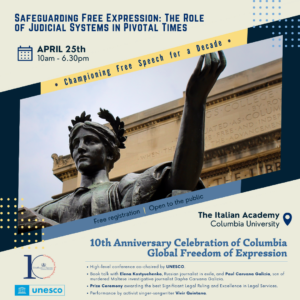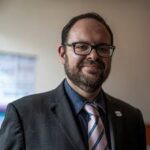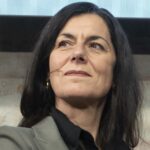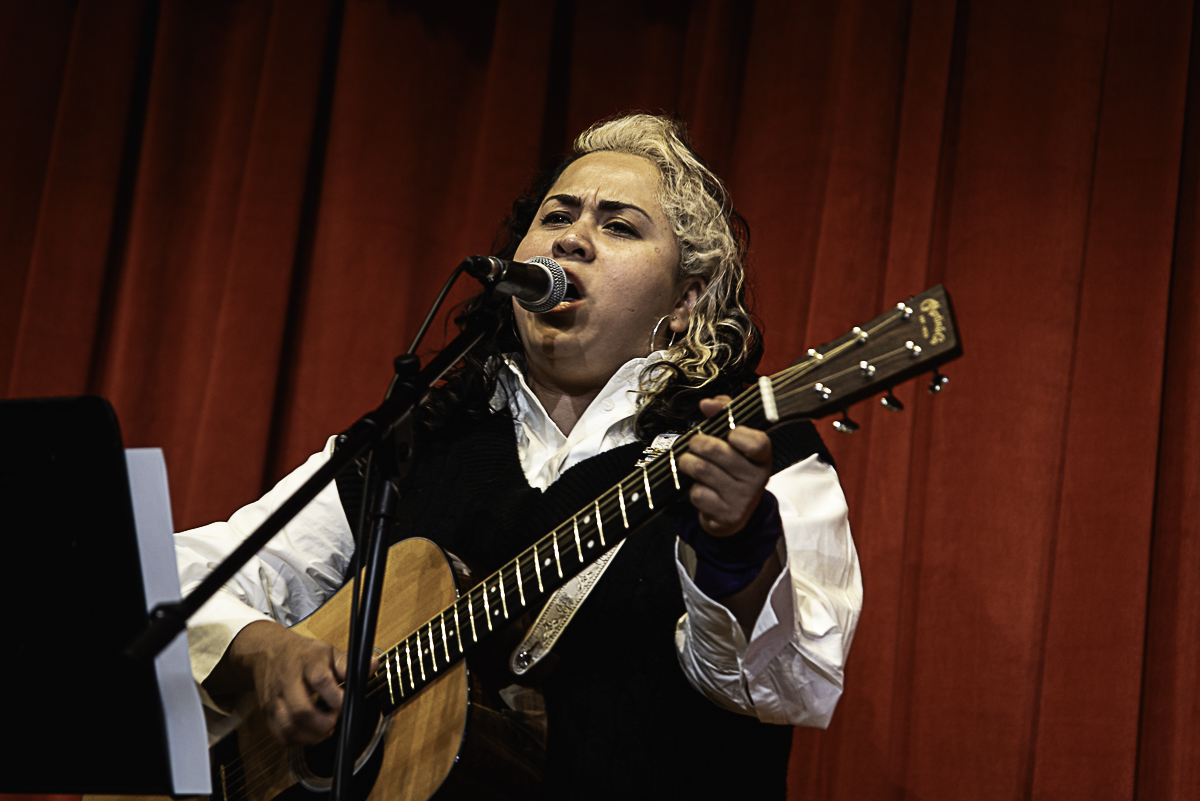25 April
Championing Free Speech for a Decade: CGFoE’s 10th Anniversary Celebration and 2024 Prize Ceremony
Safeguarding Free Expression: The Role of Judicial Systems in Pivotal Times
CGFoE’s 10th Anniversary Celebration and 2024 Prize Ceremony
All the day’s recordings are available on our YouTube channel
and in the Internet Archive
Columbia Global Freedom of Expression (CGFoE) turns 10! Founded in 2014 by then Columbia University President Lee C. Bollinger, CGFoE has been advancing global norms on freedom of speech and the press, building bridges across jurisdictions and disciplines.
To celebrate our many achievements and partnerships, we are hosting an all-day event, including a high-level conference co-chaired by UNESCO, a book talk, and the 2024 Global Freedom of Expression Prize Ceremony.
Join us! Here is what to look forward to:
-
CGFoE and UNESCO Conference:
First Panel – Breakthrough Verdicts: Legal Decisions Shaping the UN’s Sustainable Development Goals
Second Panel – Critical Legal Frontiers: Global Challenges to Freedom of Expression
-
Networking Lunch:
Thematic discussion groups with experts and anyone interested in academic work and activism on the right to freedom of expression, such as scholars, journalists, and legal professionals
-
Book Talk – “Truth, Justice, and the Power of Journalism”:
A conversation with Elena Kostyuchenko, author of I Love Russia: Reporting from a Lost Country, and Paul Caruana Galizia, author of A Death in Malta: An Assassination and a Family’s Quest for Justice
-
2024 Columbia Global Freedom of Expression Prizes:
Presentation of Awards to the Winners in Significant Legal Ruling and Excellence in Legal Services categories. Keynote speaker and master of ceremonies: Elena Kostyuchenko, Russian journalist and activist
-
Musical Performance:
By Mexican singer-songwriter and activist Vivir Quintana
The event is free and open to the public and is supported by UNESCO through the Multi-Donor Programme on Freedom of Expression and Safety of Journalists (MDP) and the Global Media Defence Fund (GMDF).
Learn more below.
CGFoE and UNESCO Conference
“Safeguarding Free Expression: The Role of Judicial Systems in Pivotal Times”
Opening Session
|
10:00 am – 10:30 am |
Speakers:
|
First Panel
| 10:30 am –
12:00 pm |
Breakthrough Verdicts: Legal Decisions Shaping the UN’s Sustainable Development Goals Speakers:
Moderator:
|
Networking Lunch
| 12:00 pm – 1:00 pm | Roundtable 1: SLAPPs. Invited experts: Caroline James, Advocacy Coordinator, AmaBhungane Centre for Investigative Journalism; Alexander Papachristou, Executive Director, Cyrus R. Vance Center for International Justice |
| Roundtable 2: Elections. Invited experts: Mishi Choudhary, Senior Vice-President and General Counsel, Virtru; Founder of SFLC.in, India; Columbia Law ’08 Sandra Coliver, Former Senior Legal Officer, Open Society Justice Initiative, USA | |
| Roundtable 3: Environment & Journalism. Invited experts: Barbara Trionfi, Press Freedom and Journalism Expert, Author of IPI Report Climate and Environmental Journalism Under Fire; Jorge Calderón Gamboa, Independent Expert of the UN Program Harmony With Nature. | |
| Roundtable 4: Vivir Quintana: Mexican singer and songwriter. |
Book Talk
“Truth, Justice, and the Power of Journalism
with Elena Kostyuchenko and Paul Caruana Galizia”
| 1:00 pm –
2:00 pm |
Discussion with Elena Kostyuchenko, author of I Love Russia: Reporting from a Lost Country, and Paul Caruana Galizia, author of A Death in Malta: An Assassination and a Family’s Quest for Justice
Moderator:
|
Second Panel
| 2:00 pm –
3:30 pm |
Critical Legal Frontiers: Global Challenges to Freedom of Expression
Speakers: – on SLAPPs:
– on Environment/Journalism:
– on Elections:
– on Artificial intelligence:
Moderator:
|
2024 Columbia Global Freedom of Expression Prize Ceremony
| 4:00 pm –
5:00 pm |
Opening of the awards announcement:
Keynote speaker and master of ceremonies:
Presentation of the winner in “Significant Legal Ruling” category. Remarks by Caroline James, amaBhugane Investigative Journalism Center. Presentation of the winner in “Excellence in Legal Services” category by Alejandra Negrete Morayta, Prize Manager, Columbia Global Freedom of Expression. Remarks by Nicole Friederichs, Lead Counsel and Director of the Human Rights and Indigenous Peoples Clinic at Suffolk University, Law School; Amy Van-Zyl Chavarro, Of-Counsel of the Human Rights and Indigenous Peoples Clinic at Suffolk University, Law School; and Adriana Sunun Pablo, Legal advisor at the Association of Maya Lawyers and Notaries in Guatemala. Closing performance by Vivir Quintana. Closing Remarks:
|
Reception (5:00 – 6:30 PM) – by invitation only
 Hawley Johnson, Associate Director, Columbia Global Freedom of Expression
Hawley Johnson, Associate Director, Columbia Global Freedom of Expression
Dr. Hawley Johnson is the Associate Director of Columbia Global Freedom of Expression. Since 2014 she has managed the development of the Case Law Database which hosts analyses of seminal freedom of expression court rulings from more than 130 countries. Hawley has over twelve years of experience in international media development both academically and professionally, with a focus on Eastern Europe. From 2013-2014 she worked with the award-winning Organized Crime and Corruption Reporting Project to launch the Investigative Dashboard (ID), a joint effort with Google Ideas offering specialized databases and research tools for journalists in emerging democracies. Previously, as the Associate Director of the Media and Conflict Resolution Program at New York University, she oversaw the implementation of over eight US government sponsored media development programs in eleven countries. In 2012, she completed her Ph.D. in Communications at Columbia University’s Graduate School of Journalism. Her dissertation – a study of the evolution of media development policies in Bosnia-Herzegovina, Kosovo and Macedonia – was grounded in extensive field research in the region. She has a M.A. from Columbia University’s School of International and Public Affairs and a B.A. in International Affairs from the School of International Service at American University.
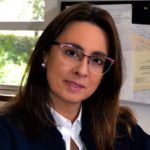 Catalina Botero, UNESCO Chair on Freedom of Expression at Universidad de los Andes, Colombia, and former consulting director of Columbia Global Freedom of Expression
Catalina Botero, UNESCO Chair on Freedom of Expression at Universidad de los Andes, Colombia, and former consulting director of Columbia Global Freedom of Expression
Catalina Botero Marino is the former consulting director of Global Freedom of Expression from April 2021 – June 2023. She is a lawyer, director of the UNESCO Chair on Freedom of Expression at the Universidad de Los Andes, co-chair of the Oversight Board of Facebook and Instagram, member of the external transparency panel of the Inter-American Development Bank, commissioner of the International Commission of Jurists and member of the Advisory Board of the International Bar Association’s Human Rights Institute. She is an adjunct professor at American University’s Human Rights Academy. She was Special Rapporteur for Freedom of Expression of the Inter-American Commission on Human Rights of the OAS, Dean of the Faculty of Law of the Universidad de Los Andes, and an Associate Judge of the Constitutional Court and of the Council of State in Colombia.
Guilherme Canela Godoi, Chief of the section of Freedom of Expression and Safety of Journalists, Communication and Information Sector at UNESCO
Guilherme Canela holds the position of chief of the section of Freedom of Expression and Safety of Journalists at UNESCO headquarters in Paris. For 8 years, he held the position of Communication and Information Regional Adviser for Latin America and the Caribbean at UNESCO Montevideo Office. During those years, he performed as Regional Coordinator of the UNESCO Initiative for the Promotion of Democracy and Freedom of Expression in judicial systems in Latin America. He was also the Secretary of the Regional Committee of the UNESCO Memory of the World Programme for Latin America and the Caribbean, and focal point of the Organization for issues related to the safety of journalists. He has a B.A. in International Relations from the University of Brasília (UNB) and a Master’s Degree on Political Science from the University of São Paulo (USP).
For 8 years (2000-2008), Guilherme coordinated the media and journalism research area of the News Agency for Children’s Rights (ANDI). In this period, he was responsible for several surveys that evaluated the news media coverage on issues such as children’s education, rights, violence, health, sexual abuse, human and social development, drugs, participatory democracy, entrepreneurial social responsibility, human rights, among others.
He is co-author of 10 books published by ANDI on these issues (Series Media and Social Mobilization, Cortez Publisher) and several brochures, magazines and discussion texts on various topics related to the universe of human rights, of the rights of children, in particular of development and of democracies. He was research consultant for the United Nations Latin American Institute for the Prevention of Crime and the Treatment of Offenders and for the Ayrton Senna Journalism Award.
Guilherme was senior member of the Working Group of the Ministry of Justice of Brazil to Provide Advisory Services to the Regulation of TV Programs’ Rating System and associated researcher at the Nucleus for Studies of Media and Politics of the University of Brasilia. He was president of the Consultative Committee on Children and Media in Uruguay. Jointly with Solano Nascimento he published the book Access to information and public policies social control. He actively participated in the process of discussion and implementation of Access laws in Brazil, Paraguay and acted as an international observer in the Uruguay Open Government process. He was/is a member of several advisory boards and juries related to journalism and freedom of expression.
 Aryeh Neier, President Emeritus of the Open Society Foundations
Aryeh Neier, President Emeritus of the Open Society Foundations
Before joining the Open Society Institute and the Soros Foundations as President in September 1993, Aryeh Neier spent twelve years as Executive Director of Human Rights Watch, of which he was a founder in 1978. Prior to that position, he worked for the American Civil Liberties Union for fifteen years, including eight as national Executive Director. Mr. Neier served as an Adjunct Professor of Law at New York University for more than a dozen years [1978-1991] and has lectured at a number of the country’s leading universities and at universities in many other countries. He is the recipient of six honorary doctorates (State University of New York-Binghamton, Hofstra University, Hamilton College, American University, University of Connecticut, John Jay College of Criminal Justice) and the American Bar Association’s Gavel Award.
The author of six books (Dossier [1975]; Crime and Punishment: A Radical Solution [1976], Defending My Enemy [1979], Only Judgment [1982], War Crimes [1998]), and Taking Liberties [2003], Mr. Neier has also contributed chapters to more than twenty-five books. He has been a frequent contributor to The New York Review of Books and has also published in such periodicals as The New York Times Magazine, The New York Times Book Review, Foreign Policy, Dissent and a number of law journals. For a dozen years he wrote a column on human rights for The Nation. He has contributed more than a hundred and fifty op-ed articles to newspapers, including The New York Times, The Washington Post, The Boston Globe, The Los Angeles Times, and The International Herald Tribune. Many of his articles have been syndicated internationally.
Mr. Neier was born in Nazi Germany and became a refugee at an early age. An internationally recognized expert on human rights, he has conducted investigations of human rights abuses in more than forty countries around the world. For more than two decades he has been directly engaged in efforts to promote compliance with international humanitarian law (the laws of armed conflict), and in the global debate on accountability, bringing to justice those who have committed crimes against humanity. He played a leading role in the establishment of the international tribunal to prosecute those responsible for war crimes and crimes against humanity in the former Yugoslavia.
 Eduardo Bertoni, Director of the Center for Human Rights and Humanitarian Law, American University Washington College of Law
Eduardo Bertoni, Director of the Center for Human Rights and Humanitarian Law, American University Washington College of Law
Professor Eduardo Bertoni (PhD, Buenos Aires University) is currently the Director of the Center for Human Rights and Humanitarian Law at the American University Washington College of Law. Representative of the Regional Office for South America of the Inter American Institute of Human Rights until December 2023. First Director of the Access to Public Information Agency (AAIP) which is the Argentine Data Protection and Access to Information Authority. Founder and director of the Center for Studies on Freedom of Expression and Access to Information (CELE) at Palermo University School of Law, Argentina. Executive Director of the Due Process of Law Foundation (DPLF) until May, 2006. Special Rapporteur for Freedom of Expression of the Inter-American Commission of Human Rights at the Organization of American States (2002-2005). Teaching Fellow at the Human Rights Institute at Columbia University School of Law (2001). Reagan-Fascell Democracy Fellow (2012-13) at the National Endowment for Democracy (NED). Former member of the advisory boards of the Human Rights Initiative (Open Society Foundations), the Media Legal Defence Initiative, the Freedom of Information Advocates Network (FOIAnet), among others. Dr. Bertoni has also worked as an advisor to the Department of Justice and Human Rights in Argentina. He is an Argentinean lawyer and holds a Masters in International Policy and Practice from the Elliot School of International Affairs, George Washington University. Prof. Bertoni taught at Buenos Aires University School of Law and New York University School of Law (Global Clinical Professor), among others universities. He published several opinion pieces on democracy and human rights in leading newspapers in the Americas and has written several publications on judicial reforms, international criminal law and human rights & Internet.
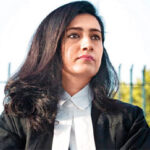 Karuna Nundy, Senior Advocate, Supreme Court of India, and international human rights lawyer; Columbia Law ’01
Karuna Nundy, Senior Advocate, Supreme Court of India, and international human rights lawyer; Columbia Law ’01
Karuna Nundy is a senior advocate designated by the Supreme Court of India, and international human rights lawyer. She represents and acts as legal policy adviser to governments, United Nations, companies and civil society movements. She is arguing as unconstitutional restrictions on online speech before the Supreme Court of India. Her pro bono practice includes also, the Supreme Court litigation from the 1984 gas disaster and toxic waste dumps in Bhopal. She has argued cases involving the rights of alleged terrorists, mentally ill people and class actions on sexual harassment. Karuna’s advisory and policy work includes contributions to the Nepal Interim Constitution; a legislation workshop with the Senate of Pakistan; advice to the Government of Bhutan on compliance with human rights treaties; and legal reform in the Maldives with the Attorney General’s Office and the Chief Justice of the Maldives Supreme Court. In India, she drafted contributions to the new “anti-rape” laws and the Right to Food Act. Karuna has an Economics degree (St. Stephen’s College, Delhi University), a law degree (University of Cambridge), and an LL.M. (Columbia Law School). She is qualified to practice in India and NY. She is interviewed and comments on free speech, gender and legal issues on the BBC, India Today, the New York Times, NPR, FAZ, NDTV and other media.
 Sarah Peeters, Programme Officer – Development of the Legal Profession at the Pan African Lawyers Union (PALU)
Sarah Peeters, Programme Officer – Development of the Legal Profession at the Pan African Lawyers Union (PALU)
She manages projects related to the legal profession and she contributes to the drafting and reviewing of the applications before the regional courts in East-Africa. Furthermore, she is the focal point on freedom of expression related projects within PALU. Before joining PALU, she volunteered at the Legal and Human Rights Centre (LHRC) in Arusha, Tanzania. In 2012, Mrs. Peeters got admitted to the Bar Association of Antwerp (Belgium) and was a practicing lawyer for more than 9 years. She founded her own law firm in 2016 and specialized in legal aid and family law. Mrs. Peeters holds an LLM in private law and criminal law and a LLB in private and public law from the Free University Brussel.
 Alice Gardoll, Chief of Staff, Office of Amal Clooney; Columbia Law ’20
Alice Gardoll, Chief of Staff, Office of Amal Clooney; Columbia Law ’20
Alice Gardoll is a human rights lawyer and Chief of Staff to Amal Clooney. She is the Assistant Editor and author of three chapters in the recently published text, Freedom of Speech in International Law, edited by Amal Clooney and Lord David Neuberger and published by Oxford University Press. She has spent her career defending and amplifying the voices of journalists, victims of human rights abuses, asylum seekers and incarcerated individuals. At the international human rights organization Reprieve, Ms Gardoll specialized in arbitrary and unlawful detention. She has practised as a public defender representing Aboriginal Australians in the Northern Territory and as a refugee lawyer in Australia and Greece. She also sits on the Board of the Refugee Advice & Casework Service. She began her career as a clerk to President of the New South Wales Court of Appeal, Her Excellency the Honourable Margaret Beazley AC KC, the 39th Governor of New South Wales. Ms Gardoll obtained her law degree at the University of Sydney and her Master of Laws as a Fulbright Scholar at Columbia University.
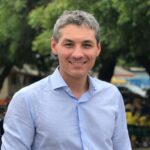 Moderator: Mehdi Benchelah, Senior Project Officer – Freedom of Expression and Safety of Journalists Section – UNESCO
Moderator: Mehdi Benchelah, Senior Project Officer – Freedom of Expression and Safety of Journalists Section – UNESCO
Mehdi Benchelah, Senior Project Officer, Section for Freedom of Expression and Safety of Journalists, UNESCO. Mehdi Benchelah is a senior project officer at UNESCO and is coordinating the Rule of Law, Policy and Freedom of Expression Team within the Section for Freedom of Expression and Safety of Journalists. He coordinates the Judges’ Initiative, a global strategy for the judiciary systems on freedom of expression, access to information and safety of journalists, by fostering strategic partnerships with Regional Human Rights Courts, Supreme Courts, Judicial Training Institutes and Prosecutors’ Offices across the world. He also coordinates the implementation of an initiative to train law enforcement officers on human rights, freedom of expression and safety of journalists’ related issues, as well as their relationship with the media. He is also in charge of the Media and Elections programme to tackle disinformation and violence during election periods while respecting international standards on freedom of expression.
Mehdi Benchelah was posted in Haiti from 2010 to 2011 following the 2010 earthquake to coordinate UNESCO emergency programmes for the recovery of the media sector and the initiatives to support the culture sector. He was the Head of UNESCO Office in Tunisia from 2012 to 2014 following the Revolution and democratic transition, and coordinated the support of the media law reform, capacity-building activities for the media including in times of election, and other activities to support national authorities and civil society organizations.
Prior to joining UNESCO, Mehdi worked for a decade as a freelance reporter covering international affairs and conflicts in the Arab region, Africa and Latin America. Notably, he covered the Algerian civil war, the Second Intifada in Palestine and Israel, the Iraq war following the United States’ 2003 invasion, and the drugs war in Latin America. He was the permanent correspondent of Radio France and the leading magazine Le Point while he was based in the Gaza strip covering the Israeli-Palestinian conflict and Middle East news from 1998 to 2000.
A graduate of the Law School of Sorbonne University Paris I with a Masters’ degree in Law, he is the author of non-fiction: Le Pèlerin de Jerusalem (with Jean Lecuyer, J.C Lattes publishing 2000), Journal d’Algérie 1991-2001 (with Michael Von Graffenried, 2003) and fictions books: Les flamboyants de Gaza (Cherche Midi publishing 2004) and Bassora-Express (Cherche Midi publishing 2006).
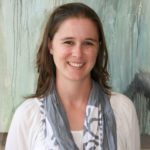 Caroline James, Advocacy Coordinator, AmaBhungane Centre for Investigative Journalism
Caroline James, Advocacy Coordinator, AmaBhungane Centre for Investigative Journalism
Caroline James is a South African freedom of expression lawyer. Since 2022 she has been the advocacy coordinator for the amaBhugane Center for Investigative Journalism. She completed her M.A. at Queen’s University in Canada has BA(Hons) and LLB degrees from the University of the Witwatersrand in Johannesburg, South Africa. Her research interests are in constitutional and human rights law – particularly the way in which power is held to account. Caroline previously worked as the freedom of expression lawyer at the Southern Africa Litigation Centre in Johannesburg where she worked with lawyers and organizations in southern Africa litigating and advocating for the right to freedom of expression and association. Caroline has also worked as a judge’s clerk at the South Gauteng High Court in Johannesburg.
Barbara Trionfi, Press Freedom and Journalism Expert, Author of IPI Report Climate and Environmental Journalism Under Fire
Barbara Trionfi has dedicated her professional career to the defense of press and media freedom and the promotion of independent, public interest journalism. Recently, Barbara has been focusing on the obstacles faced by climate and environmental journalism, including attacks, undue restrictions as well as editorial and financial challenges. This has resulted in these two publications: “The Change We Need: Strategies to Support Climate and Environmental Journalism” (Oct. 2023) and “Climate and Environmental Journalism under Fire: Threats to Free and Independent Coverage of Climate Change and Environmental Degradation” (Feb 2024). In her previous position as Executive Director at the Vienna-based International Press Institute (IPI), a global network of editors, media executives and leading journalists, Barbara successfully managed IPI’s global operations aimed at promoting press freedom and supporting independent journalism. Under her directorship, IPI greatly expanded its activities, both geographically and thematically, to address the increasingly complex challenges and threats to independent journalism.
 Jorge Calderón Gamboa, Independent Expert for the United Nations Harmony with Nature Programme
Jorge Calderón Gamboa, Independent Expert for the United Nations Harmony with Nature Programme
Jorge Calderón Gamboa is an Independent Expert for the UN Harmony With Nature Programme and the MICI – IDB; International Consultant and Visiting Professor at the UN-Mandated University for Peace. He was a Senior Coordinating Attorney at the Inter-American Court of Human Rights in Costa Rica (2007-2019), where he was in charge of several of the Court´s leading cases regarding vulnerable groups, indigenous peoples, the environment, and ESCER jurisprudence. He was also a Senior Judicial Clerk at the Mexican Supreme Court of Justice (SCJN 2019 – 2023), a Seconded Jurist at the European Court of Human Rights in Strasbourg, France, and Deputy Visitor at the Ombudsperson of Mexico City. He received his LL.B. at the Universidad Iberoamericana in México and an LL.M. on International Legal Studies at American University, Washington College of Law (AU-WCL). He has specialized studies on Environmental Protection at the Center of Constitutional Studies in México (CEC). He has various publications on Environmental protection and the Rights of Nature.
 Mishi Choudhary, Senior Vice-President and General Counsel, Virtru; Founder SFLC.in India; Columbia Law ’08
Mishi Choudhary, Senior Vice-President and General Counsel, Virtru; Founder SFLC.in India; Columbia Law ’08
Mishi Choudhary is a technology lawyer, licensed to practice in New York and India with over 17 years of experience in the area of intellectual property rights, Open Source licensing, e-commerce, privacy, surveillance, platform liability, and user free expression. She has been involved in a number of court cases and other efforts around the protection of online free speech and expression; privacy; surveillance and software patents in India. Mishi has served as Senior Vice-President and General Counsel at Virtru since August 2022.
Before joining Virtru, Mishi was the Legal Director at Software Freedom Law Center, New York, which provides pro-bono legal services to developers of Free, Libre, and Open Source Software. In 2010, she founded SFLC.in, India, a legal services organization based out of New Delhi that brings together lawyers, policy analysts, technologists, and students to protect freedom in the digital world. At SFLC.in, she focused her work on the promotion of innovation and open access to knowledge by helping developers make great Free and Open Source Software, protect privacy and civil liberties for citizens in the digital world, and educate policymakers to reach informed decisions on the use and adoption of technology.
Mishi has a Master’s degree in Law from Columbia University in the City of New York, a Legum Baccalaureus (LL.B.) degree with Honors, and a Bachelor’s degree in Political Science from the University of Delhi.
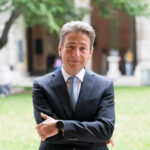 Professor Nikolaus Forgo, Head of the Department of Innovation and Digitalization in Law, University of Vienna
Professor Nikolaus Forgo, Head of the Department of Innovation and Digitalization in Law, University of Vienna
Professor Nikolaus Forgo is the Head of the Department of Innovation and Digitalization in Law at the University of Vienna, Austria. Forgo has been a Member of the AI Advisory Board since 2023, an Expert member of the Data Protection Council of the Republic of Austria since 2018, and a Member of the Digitalisation Council of Lower Saxony since 2017. He has taught IT- and IP Law at the Department of Innovation and Digitalisation in Law at the University of Vienna since 2017. He previously taught IT-Law and Legal Informatics (2000-2017) and served as the Head of the Institute for Legal Informatics (2007-2017), Data Protection Officer (2013-2017), and Chief Information Officer (2015-2017) at Leibniz University Hannover and was the Director of the Research Center L3s (2013-2017).
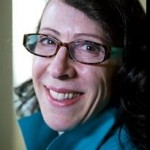 Moderator: Sandra Coliver, Former Senior Legal Officer, Open Society Justice Initiative, USA
Moderator: Sandra Coliver, Former Senior Legal Officer, Open Society Justice Initiative, USA
Sandra Coliver is a Former Senior Legal Officer for Freedom of Information and Expression at the Open Society Justice Initiative, an operational arm of the Open Society Foundations. Previously, she managed or participated in human rights and rule of law programs around the world, including with the UN High Commissioner for Human Rights, the OSCE, and Article 19. She coordinated the drafting of the Tshwane Principles on National Security and Right to Information (2013), helped develop the Johannesburg Principles on National Security, FOE and Access to Information (1995), and wrote a commentary and edited a book on that theme (published by Martinus Nijhoff); wrote a Handbook on FOE Best Law and Practice; edited a book on hate speech laws and practice in more than two dozen countries; and co-authored two other books on freedom of expression and information issues. She has submitted several interventions to the European and Inter-American Human Rights systems, and contributed to the UN Human Rights Committee’s General Comment on Article 19. She served on the Faculty of the Summer Program on International Human Rights and Humanitarian Law at AU Washington College of Law, and taught at the University of California, Berkeley Law School.
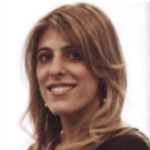 Alejandra Negrete Morayta, CGFoE Member, Manager of the 2024 CGFoE Prizes
Alejandra Negrete Morayta, CGFoE Member, Manager of the 2024 CGFoE Prizes
Alejandra Negrete Morayta is an attorney at law from National Autonomous University of Mexico. She holds an M.A. in Legal Argumentation from the University of Alicante, Spain. Throughout her career, Alejandra has worked in the fields of human rights, gender equality, due diligence, freedom of expression, as well as in the making of public policies pertaining to these issues. In Mexico, she served as National Commissioner to Prevent and Eradicate Violence Against Women and as Prosecutor for Labor Defense in Mexico. Also, she has served as adviser in human rights for the Presidency Office at the Mexican Supreme Court of Justice, and as a human rights specialist for the Office of the Special Rapporteur for Freedom of Expression at the Inter-American Commission on Human Rights, the Inter-American Court of Human Rights and the Inter-American Commission of Women.
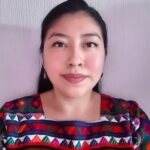 Adriana Sunun Pablo, Legal advisor at the Association of Maya Lawyers and Notaries in Guatemala
Adriana Sunun Pablo, Legal advisor at the Association of Maya Lawyers and Notaries in Guatemala
Adriana Sunun Pablo, a Kaqchikel Mayan woman from Guatemala, is part of the legal team of the Association of Mayan Lawyers and Notaries of Guatemala, an organization made up of Mayan women and men professionals in the legal and social sciences, united to defend, advise and promote the rights of indigenous peoples in Guatemala. She has provided legal accompaniment in judicial processes for the defense of individual and collective rights of indigenous peoples, mainly cases of criminalization, freedom of expression and defense of land and territory. She is currently part of the legal team that provides legal accompaniment in the case of Pueblos Indígenas Maya Kaqchikel de Sumpango y Otros Vs. Guatemala, which was presented before the Inter-American Court of Human Rights, obtaining a judgment in 2021.
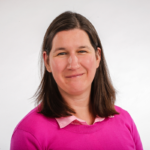 Nicole Friederichs, Lead Counsel and Director of the Human Rights and Indigenous Peoples Clinic at Suffolk University, Law School
Nicole Friederichs, Lead Counsel and Director of the Human Rights and Indigenous Peoples Clinic at Suffolk University, Law School
Nicole Friederichs is a Practitioner-in-Residence at Suffolk University Law School in Boston where she teaches Federal Indian Law, International Human Rights Law and directs the Human Rights and Indigenous Peoples Clinic. The Clinic supports the Native Nation building efforts of Tribal Nations located within the Northeast, and implements international human rights advocacy strategies in partnership with Indigenous communities to address human rights violations. Prior to joining Suffolk, Nicole practiced federal Indian law and international human rights law working on a range of cases, including jurisdictional cases between Native Nations and States, and Indigenous Peoples’ property rights cases before international and regional human rights bodies. She holds an LLM in Indigenous Peoples Law and Policy from the University of Arizona College of Law, a JD from Suffolk University Law School, and is a graduate of Mount Holyoke College and the London School of Economics and Political Science.
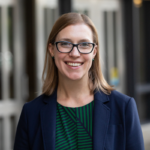 Amy Van-Zyl Chavarro, Of-Counsel of the Human Rights and Indigenous Peoples Clinic at Suffolk University, Law School
Amy Van-Zyl Chavarro, Of-Counsel of the Human Rights and Indigenous Peoples Clinic at Suffolk University, Law School
Amy Van Zyl-Chavarro, native to Colombia, is currently enrolled in the LL.M. program at Harvard Law School. She earned her Juris Doctor, with a concentration in International Law, from Suffolk University Law School. Her scholarly work has focused on the rights of indigenous peoples under both international human rights law and U.S. domestic law, and currently involves examining the idea of a human right to the environment. Ms. Chavarro has taught International Human Rights Law at Suffolk University Law School, where she also partnered with the Human Rights and Indigenous Peoples Clinic in litigating the Case of the Maya Kaqchikel Indigenous Peoples of Sumpango et al. v. Guatemala before the Inter-American Human Rights System. Advocacy efforts to push for domestic implementation of the Court’s judgment in this case are ongoing. Prior to concentrating on human rights practice, Ms. Chavarro worked for a decade in the field of U.S. immigration law.
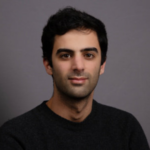 Paul Caruana Galizia, journalist and author of A Death in Malta: An Assassination and a Family’s Quest for Justice
Paul Caruana Galizia, journalist and author of A Death in Malta: An Assassination and a Family’s Quest for Justice Moderator: Marija Šajkaš, CGFoE Member and Communications Specialist
Moderator: Marija Šajkaš, CGFoE Member and Communications Specialist
Marija Šajkaš (pronounced as Maria Shay-kash) is a U.S. based writer, media expert and political analyst, and founder of 4 Better Media. Her most recent appearances and projects include work for the Freedom of the Press, Freedom House (2017), High-Level OSCE Chairmanship Conference “Freedom of the Media in the Western Balkans” in co-operation with the OSCE Representative on Freedom of the Media (2017), Mayor’s Office of immigrant Affairs in New York City (2016), Global Freedom of Expression Initiative at Columbia University (2016), CORO– Immigrant Civic Leadership Program (2015) and Association of Media in Bosnia (2015). Before that, Mrs. Šajkaš was the Head of Development and Operations for Media Diversity Institute –USA, a Press Officer for The International Committee of the Red Cross, and a Deputy-Editor-in-Chief of The Bridges Magazine, the first media outlet distributed in post-war Bosnia, produced by the United Nations, SFOR Forces. She holds an M.S. in International Affairs, with a concentration in Culture and Media Studies, from The New School University in New York, and a BS in Serbian Language and Literature from the University of Belgrade. Marija Šajkaš is the author of the novel Esther Jovanovich’s Scrapbook (Klett, 2013) and co-author of the TV documentary “Missing- the Right to Know”. (2003)
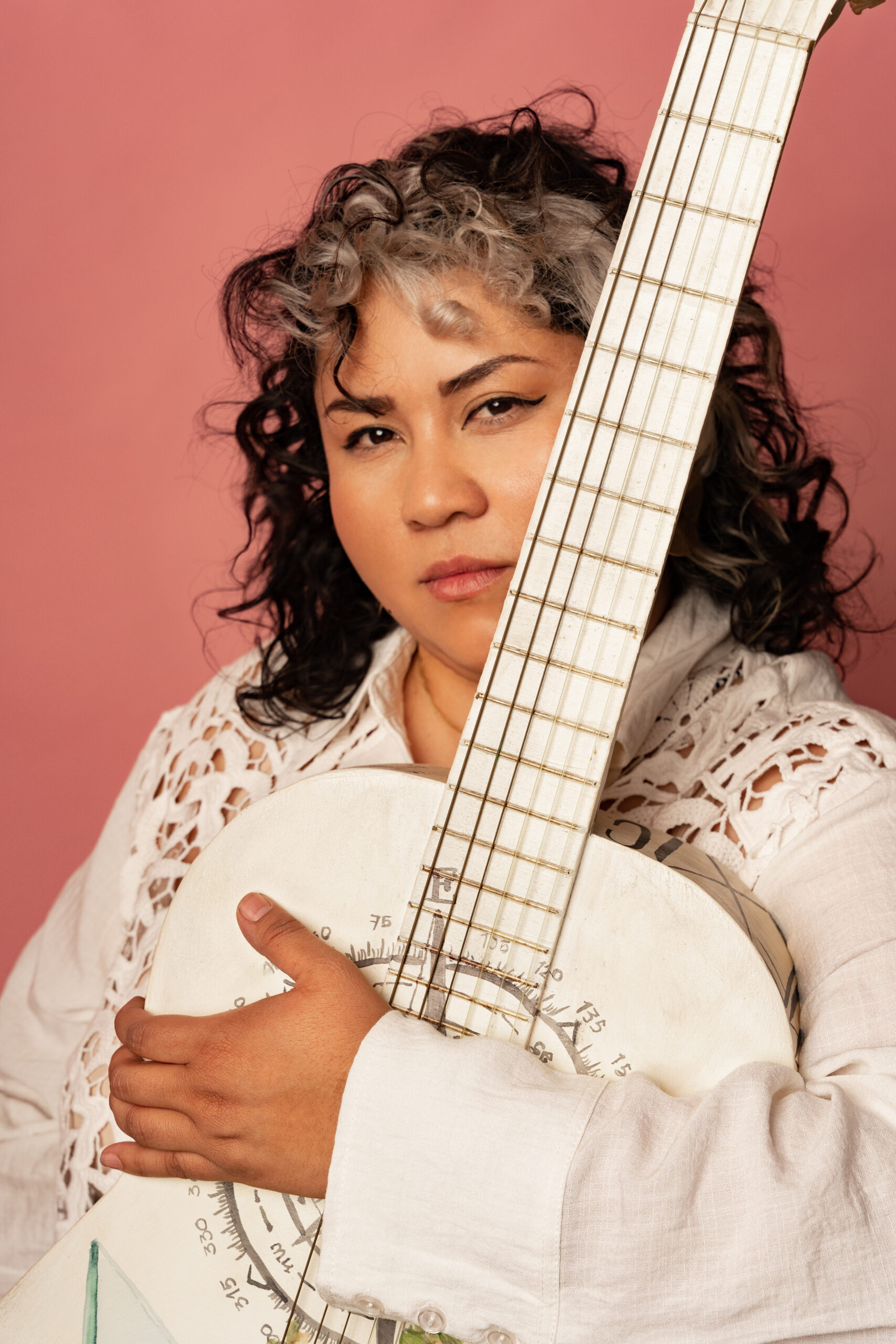 Vivir Quintana, singer-songwriter and activist
Vivir Quintana, singer-songwriter and activist
Vivir Quintana is a Mexican singer-songwriter specializing in genres such as the new Latin American song, ranchero and folk. Composer, normalista and women’s rights activist, Vivir is considered one of the most powerful voices of the continent, thanks to her extensive musical work, which highlights “Canción Sin Miedo”, a song that has been covered and translated in many parts of the world, given its vital theme: denouncing systematic violence against women.

CGFoE Team with the 2024 Prize Awardees and special guests on April 25, 2024. Photo credit: Jorge Calderón Gamboa
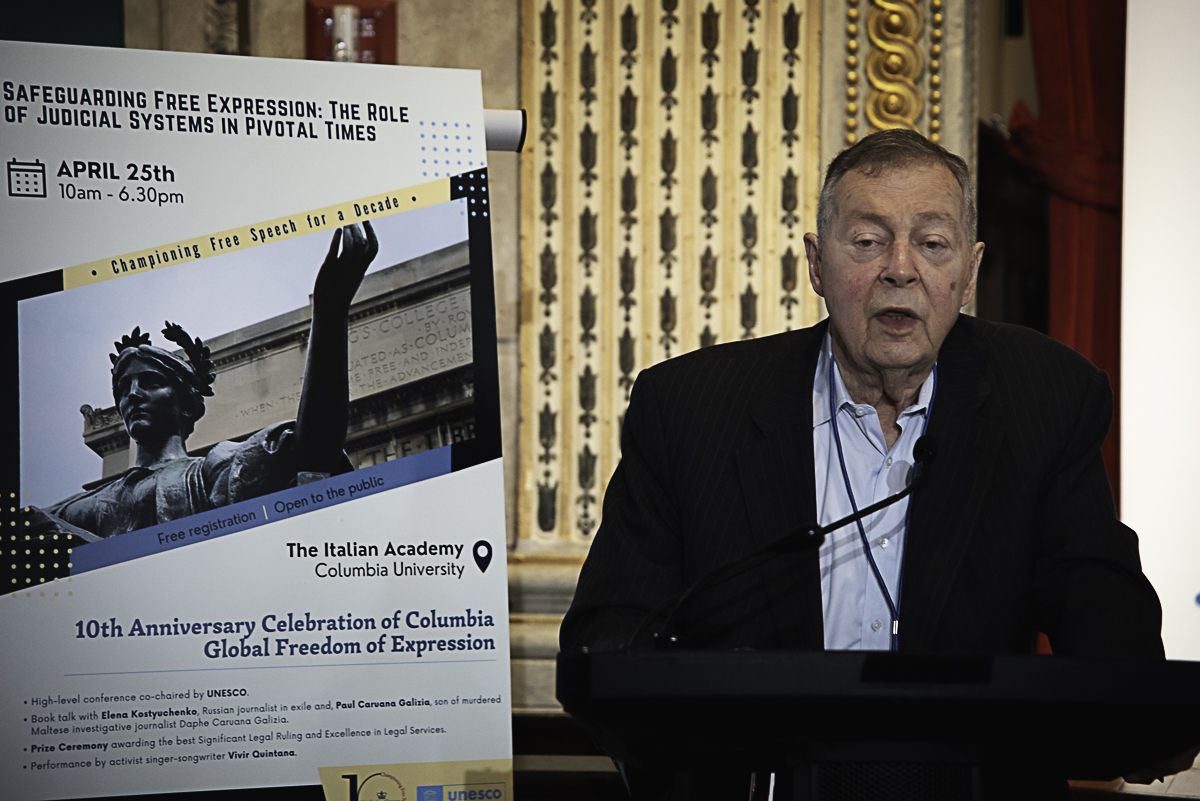
Aryeh Neier, President Emeritus of the Open Society Foundations, spoke at the Opening Session of the conference co-chaired by UNESCO. Photo credit: Juan Manuel Ospina Sánchez/CGFoE
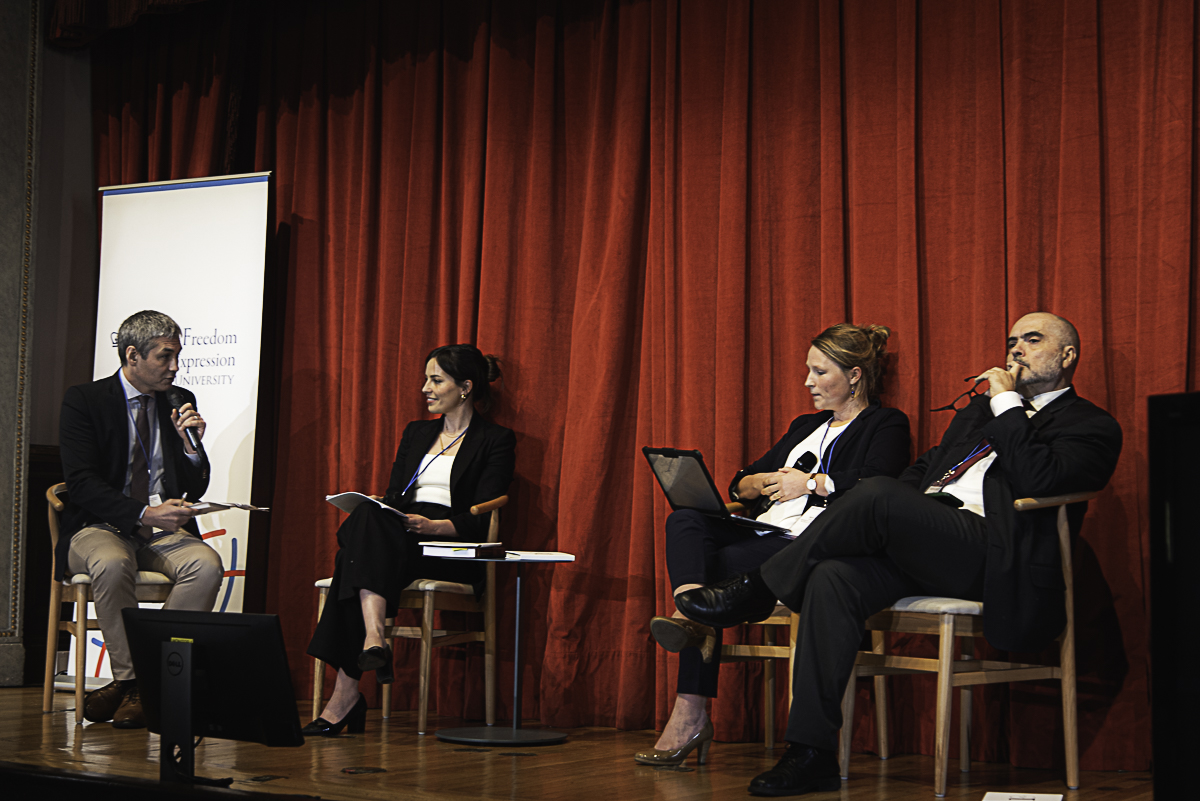
Mehdi Benchelah, UNESCO, Alice Gardoll, Office of Amal Clooney, Sarah Peeters, Pan African Lawyers Union, and Eduardo Bertoni, American University Washington College of Law, participated in the First Panel titled “Breakthrough Verdicts: Legal Decisions Shaping the UN’s Sustainable Development Goals.” Karuna Nundy of the Supreme Court of India joined virtually. Photo credit: Juan Manuel Ospina Sánchez/CGFoE
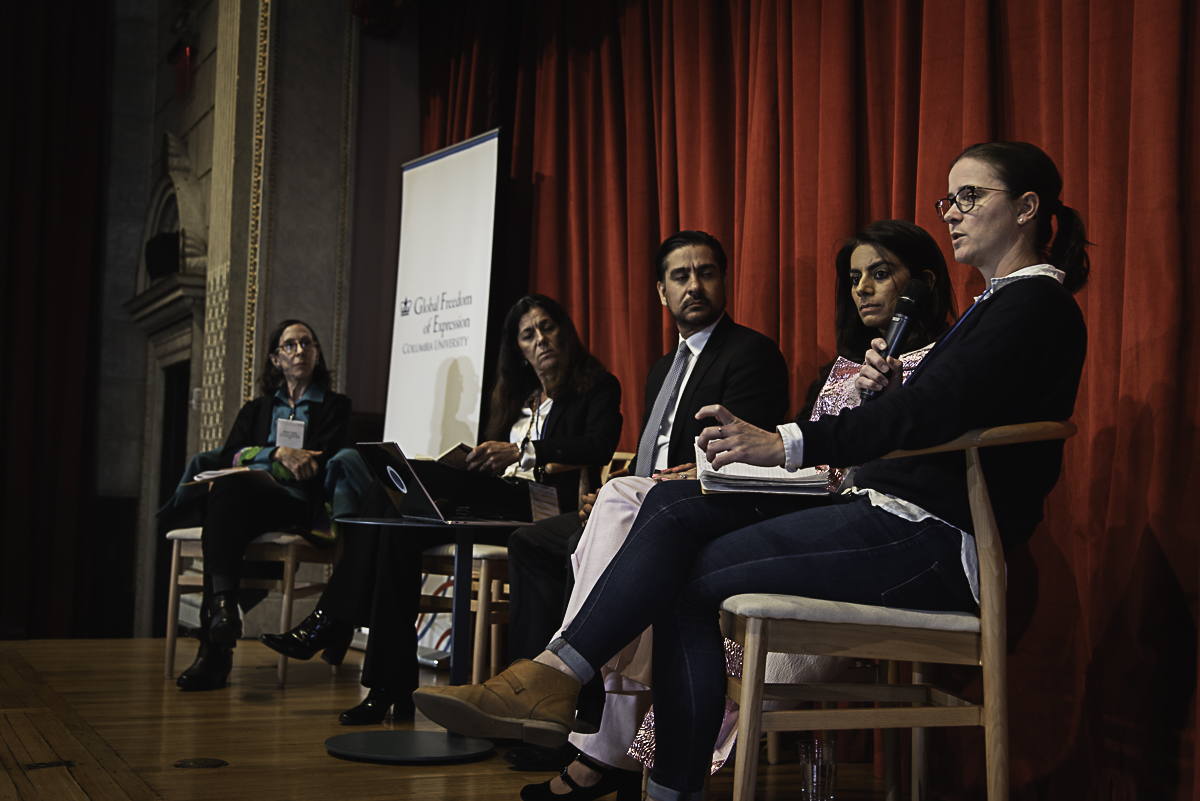
Sandra Coliver, Open Society Justice Initiative, Barbara Trionfi, Press Freedom and Journalism Expert, Jorge Calderón Gamboa, UN Program Harmony With Nature, and Mishi Choudhary, Virtru, took part in the Second Panel titled “Critical Legal Frontiers: Global Challenges to Freedom of Expression.” Nikolaus Forgo, University of Vienna, joined online. Photo credit: Juan Manuel Ospina Sánchez/CGFoE
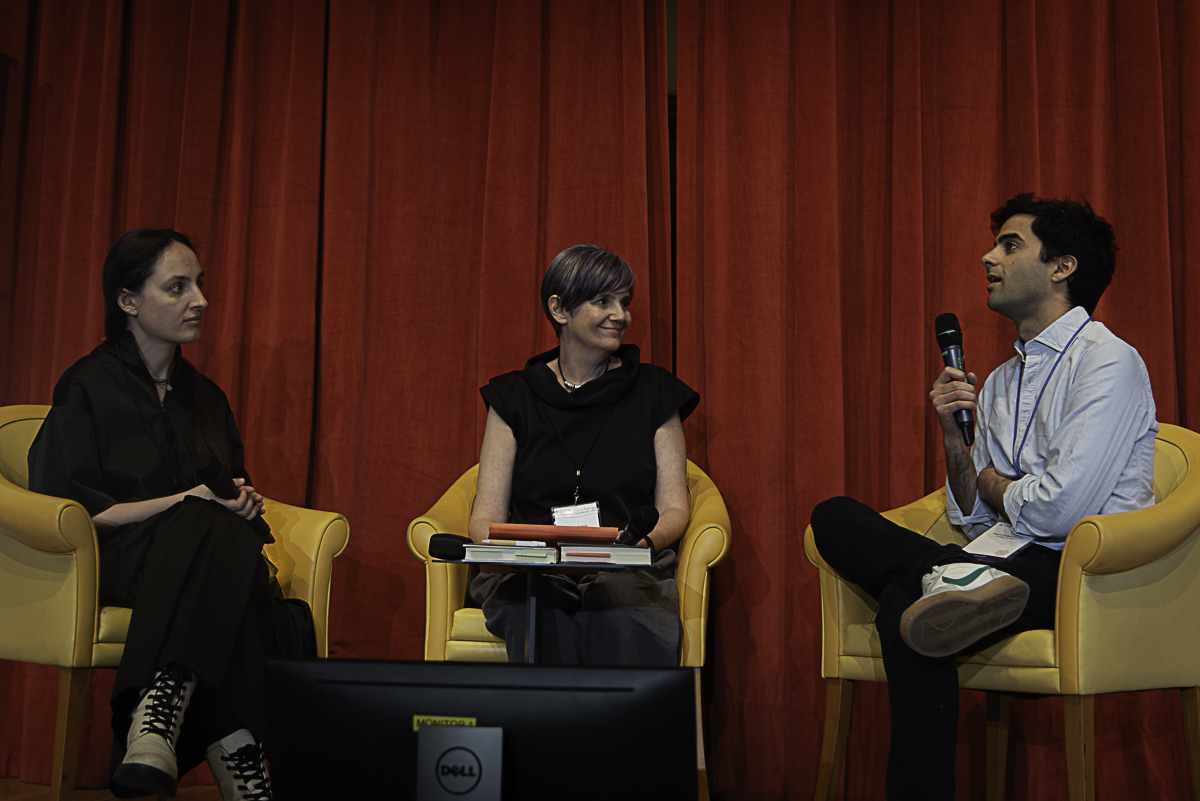
Marija Šajkaš, CGFoE’s Communications Specialist, spoke with journalists, activists, and authors Elena Kostyuchenko and Paul Caruana Galizia. Photo credit: Juan Manuel Ospina Sánchez/CGFoE

Elena Kostyuchenko, Russian journalist and activist, delivered her keynote speech at the 2024 Prize Ceremony. Photo credit: Juan Manuel Ospina Sánchez/CGFoE
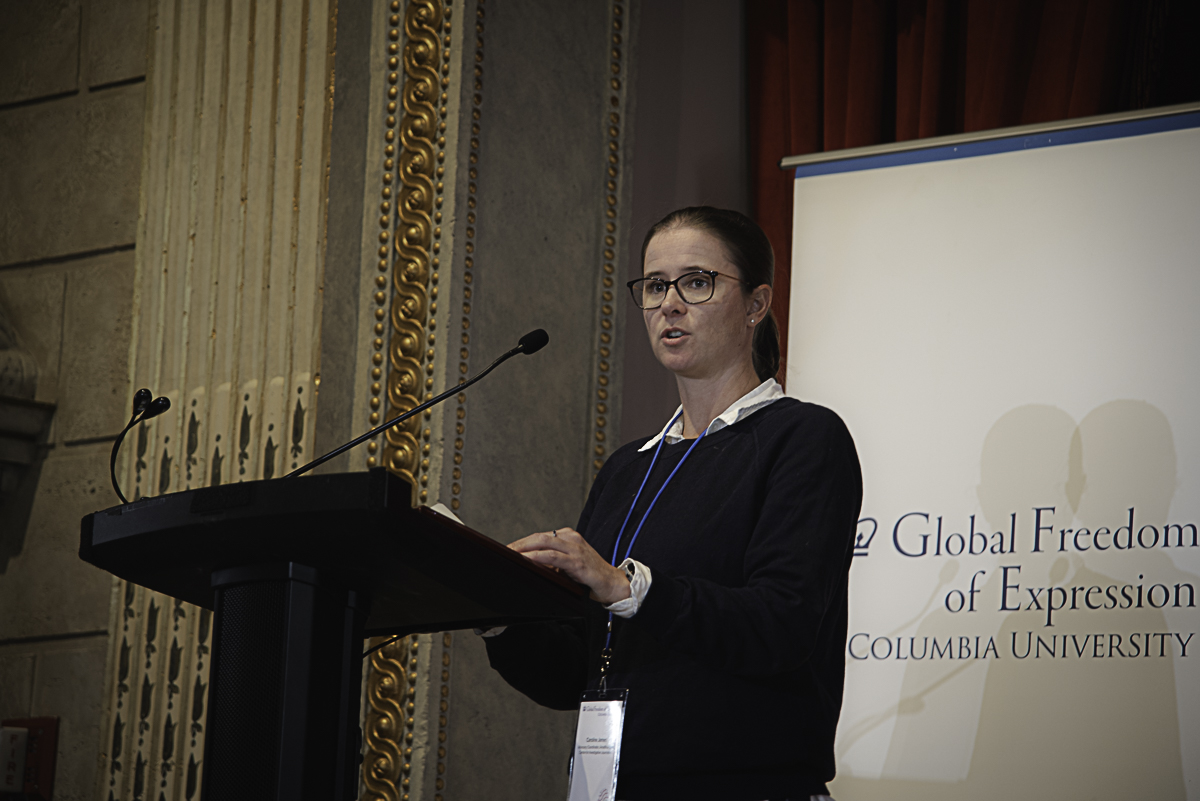
Caroline James, Advocacy Coordinator at AmaBhungane Centre for Investigative Journalism, spoke at the 2024 CGFoE Prize Ceremony. Photo credit: Juan Manuel Ospina Sánchez/CGFoE

Nicole Friederichs, Lead Counsel and Director of the Human Rights and Indigenous Peoples Clinic at Suffolk Law School, Suffolk University, Adriana Sunun Pablo, Legal advisor at the Association of Maya Lawyers and Notaries in Guatemala, and Amy Van-Zyl Chavarro, Of-Counsel of the Human Rights and Indigenous Peoples Clinic at Suffolk Law School, Suffolk University, received the 2024 CGFoE Prize for Excellence in Legal Services. Photo credit: Juan Manuel Ospina Sánchez/CGFoE

